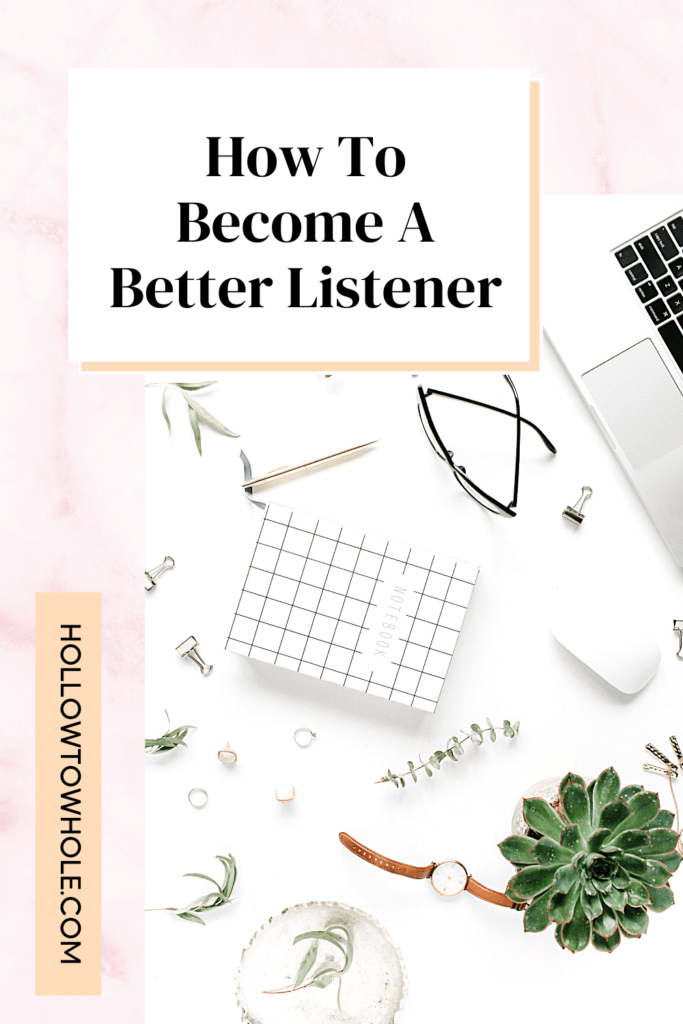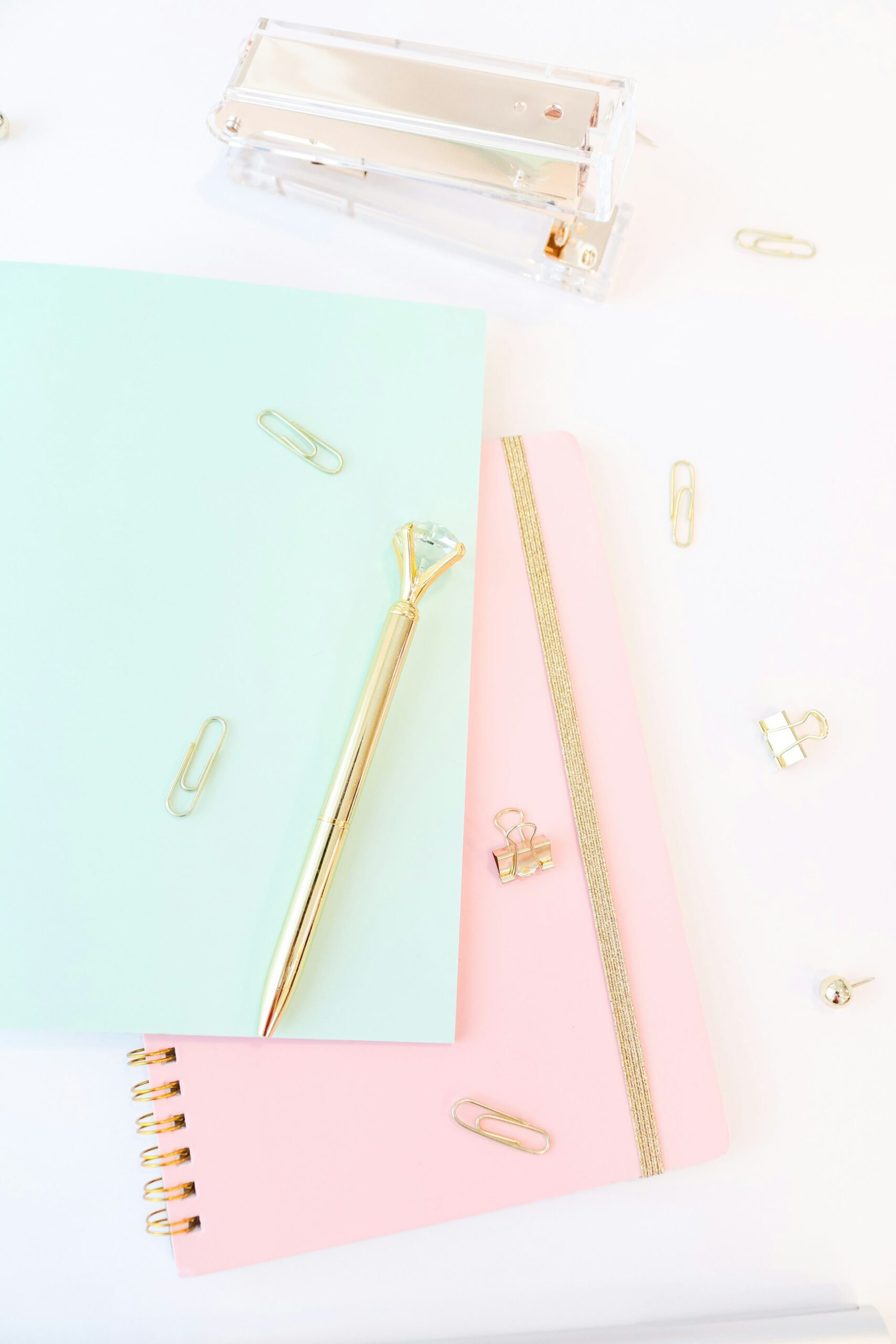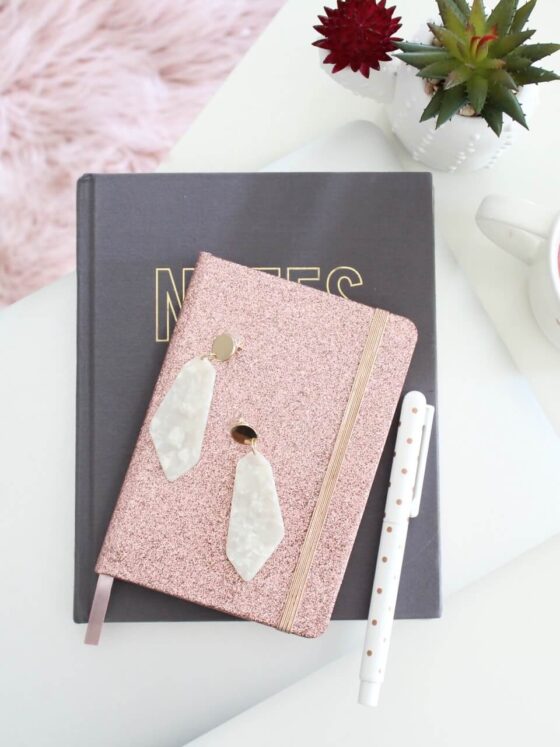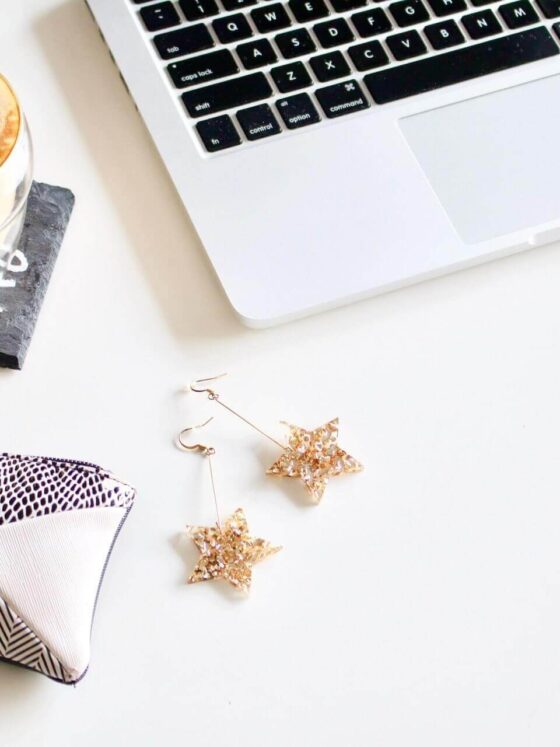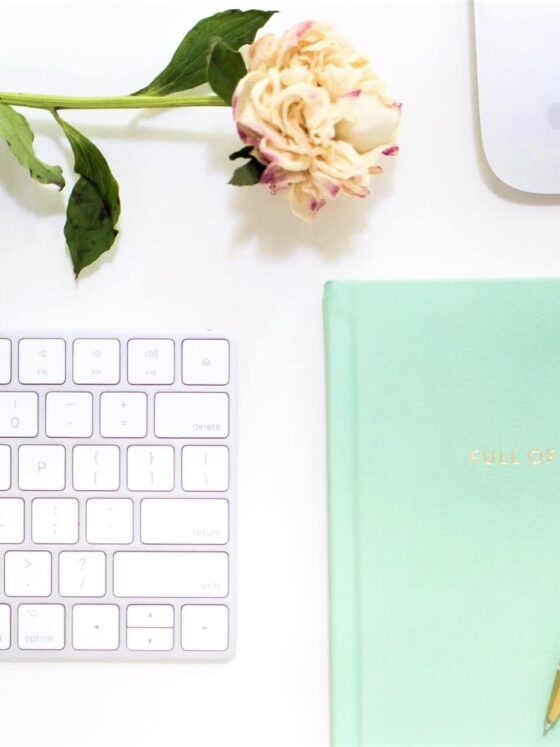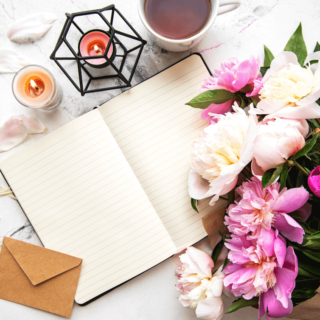One of the things I struggled with for years is being a good listener.
Many times, I thought I was listening when I probably wasn’t connecting with the person very much.
Being an introvert, I didn’t know what to say most of the time or how to say it.
I was under the impression that I had to say something to show the person I heard what they said.
And most of the time, as I’ve now learnt, my responses didn’t implicate that at all.
There’s a difference between hearing what someone has said and listening to what someone has said.
Over the years, I’ve discovered that listening isn’t all that much about responding; it’s about… well, just listening
Here are 9 secrets I’ve used to becoming a better listener!
Save this pin for later!
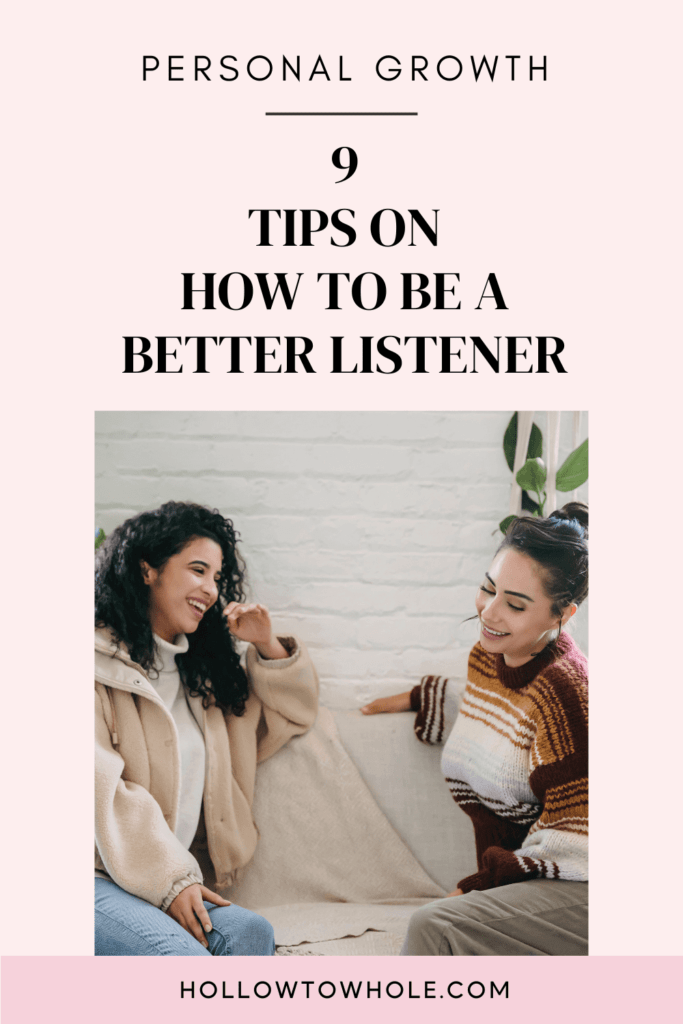
Disclosure: This post may contain affiliate links. If you click and purchase, I may receive a small commission, at no extra cost to you. Learn more here
How To Become A Better Listener: 9 Top Tips
1) Empathize Not Sympathize
Before I started working in Mental Health, I had no idea what the difference between empathy and sympathy was.
I thought I was responding empathically when really, I was responding sympathetically.
The main difference between empathy and sympathy is:
Sympathy is when you share those same feelings with the person
For Example:
The person has lost a loved one and so have you.
Friend: “I can’t believe he’s gone. I miss him so much.”
You: “I know. When I lost my grandmother, I was so sad too.”
In this conversation, it seems like you’re connecting with the person but you’re actually just talking about you and how you feel.
Sympathetic conversations are usually two people talking about themselves.
When you start talking about your own experiences, you take control of the conversation and stop listening to the other person.
Empathy is when you imagine or try to understand how they feel
For Example:
The person is going through a divorce and you have not been married before.
Friend: “We’ve been married for 20 years. I never thought this would happen to me.”
You: “You must be feeling so frustrated right now. This must be such a difficult time for you.”
Here, you are responding to their feelings and talking about them, not your own feelings or past experiences.
Most of the time, we sympathize with others. They share something that happened to them and we share something similar that’s happened to us.
Sympathetic conversations begin with “I” and empathetic conversations begin with “You”.
To be a better listener, respond with “You” and be mindful of keeping the conversation about them and not you.
2) Don’t Interrupt
When you’re speaking with someone, are you constantly thinking about what you’re going to say next?
Sometimes when we get into a conversation, we tend to jump in and interrupt the other person out of excitement or nervousness.
When you interrupt someone, what you’re really saying is: your thought is more important than theirs and you’re done listening to them.
Let the other person completely finish what they’re saying and then give your response.
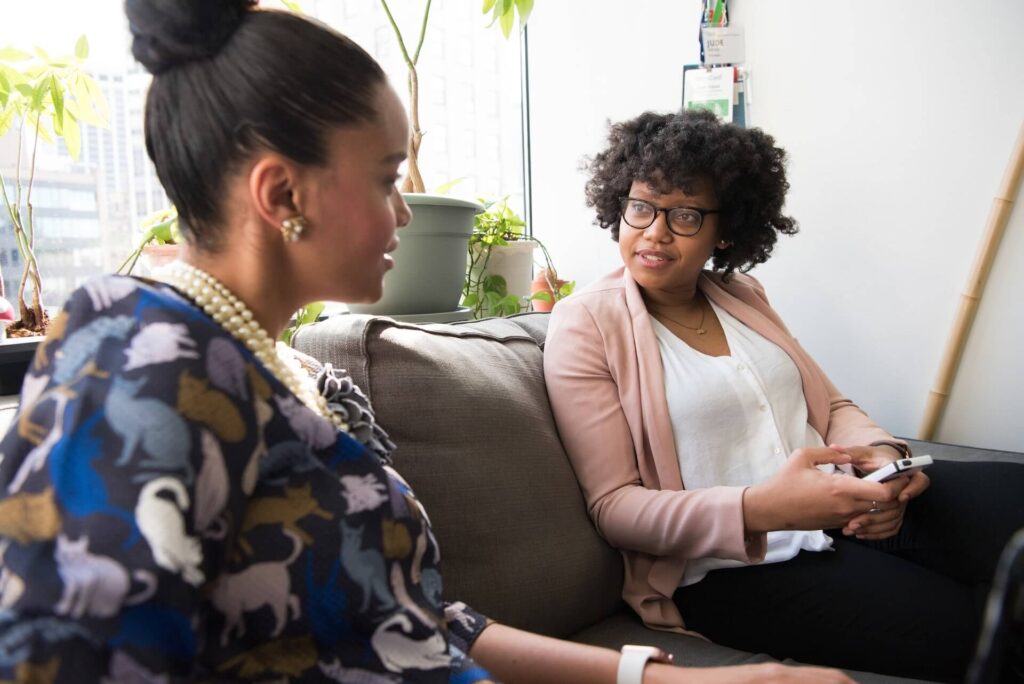
3) Eye Contact
One of the most attentive ways you can listen to someone is by looking at them.
This shows the person you acknowledge what they’re saying and you value their time.
If your spouse or your kids are talking to you and you’re looking at your phone, you’re telling them whatever you’re looking at is more important than them at that moment.
So put the phone away or leave it in the car for an hour after work and give them your full attention!
4) Facial Expressions
Most of our actions and reactions are habitual, including our facial expressions.
If someone is telling you about their struggles, make sure you’re not constantly smiling.
If someone is telling you about something exciting, make sure you don’t have a huge frown on your face.
I used to have a really intense face where I’m frowning when I spoke with someone and it looked like I was really concerned even when the person was telling me about their recent vacation trip.
You may be surprised to notice how often your facial expressions don’t match what’s being said.
Pay attention to your own facial expressions or other people’s facial expressions during different conversions to see if you can spot the incoherence.
Most people do not listen with the intent to understand; they listen with the intent to reply.
stephen R. Covey
5) Not So Awkward Silences
Do you get uncomfortable when there’s a silence during a conversation?
I used to feel so awkward when the conversation “died”.
I felt like we needed to be talking constantly to signal that we were connecting but I was totally wrong!
When someone finishes their sentence, you don’t have to respond right away. Most of the time, they have more to say.
You can give acknowledgement statements like, “I agree” or “I understand”, to let them know you’re still listening and let them gather more thoughts to continue speaking.
In a good conversation, where you’ve shown the person you’ve attentively listened to them, they should have spoken more than you.
If you’ve done more talking than they have, then you weren’t listening as much as you could have.
6) Let Them Find The Word
When the cat’s caught their tongue, do you try to finish the other person’s sentence or guess the word they’re looking for?
I’m sure we’ve all been in that situation when someone is thinking about a word and we jump in to finish it for them.
I do this too and I always have to catch myself!
When we finish other people’s sentences, we steal control of the conversation.

7) Summarize
To show someone you’ve been listening to them, you can summarize what they told you.
“So what you’re saying is…”
“This is what I’ve understood so far…”
Repeat and paraphrase what they said to let them know you’re following along with them.
8) Ask Questions
When you don’t understand something, do you ask them questions?
It’s not uncommon we avoid asking questions when we don’t understand something.
This is because we’re afraid of appearing not so smart or afraid of letting the other person find out we haven’t actually been listening the entire time.
Asking questions shows you’ve been actively listening.
Don’t be afraid to get really specific with your questions too.
Remember, people’s favourite topic is about themselves.
Ask specific details to show you’re interested and want to learn more.
9) Be Present
The last tip on becoming a better listener is to just be present.
Don’t look at your phone, don’t think about something else, don’t focus on finding the perfect response.
People can tell if you’re listening or not so always give them your full undivided attention.
Thanks for stopping by 
I hope these tips help you to becoming a better listener!
If you have any tips you use, please share them in the comments below!

Did you like this post? Save this pin!
